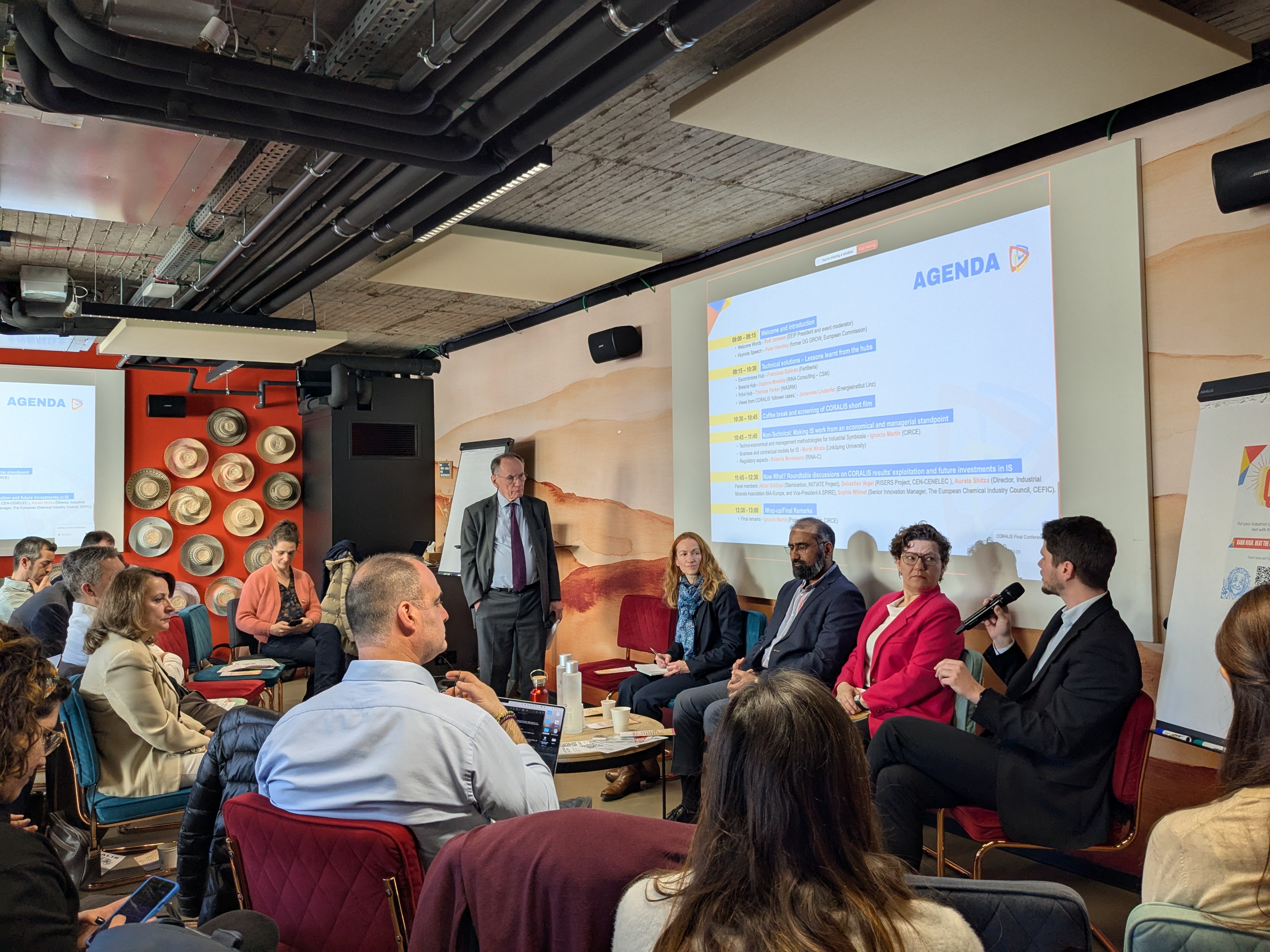On 19 March 2025, the CORALIS Final Conference took place in Brussels, bringing together about 100 participants from industry, policy, and research. Organized by the CORALIS Consortium and EEIP, the event marked the conclusion of the EU-funded project aimed at demonstrating and scaling Industrial Symbiosis (IS) solutions across Europe. RISERS was glad to take part in the closing roundtable, contributing perspectives on how standardization can help turn Industrial Symbiosis into a mainstream practice.
Learning from CORALIS Demonstration Hubs
The conference opened with a keynote by Peter Handley (formerly DG GROW), who underlined the importance of Industrial Symbiosis for Europe’s Clean Industrial Deal, linking it to investment, sustainability, and resilience strategies.
The first two panel sessions offered insights from CORALIS demonstration hubs in Spain, Italy, and Sweden. Speakers from Fertiberia, RINA Consulting, and WA3RM, among others, shared lessons learned from real-life IS projects. They addressed challenges such as CO₂ reuse, waste heat recovery, slag valorisation, and navigating legal and regulatory hurdles.
A standout example came from Frövi, Sweden, where residual heat from a pulp and paper mill is used to power a 10-hectare greenhouse for tomato production. This partnership not only reduces energy waste but also supports local food supply and job creation, highlighting the environmental and economic potential of Industrial Symbiosis. Similar achievements were shared from the Escombreras Valley in Spain, where CO₂ reuse and resource recovery are reshaping fertilizer production, and from Brescia, Italy, where industrial residues from metal manufacturing are turned into valuable secondary raw materials.
One clear message stood out: Industrial Symbiosis works — but to scale it, we need consistent regulation, trusted data-sharing, and supportive governance structures.
What’s Next for Industrial Symbiosis? RISERS at the Roundtable
The closing roundtable, “Now What?”, focused on how to build on CORALIS results and invest in future Industrial Symbiosis initiatives. Panelists included representatives from CEFIC, A.SPIRE, INITIATE, and RISERS.
Representing RISERS, Sebastian Vogel (CEN-CENELEC) highlighted the role of standardization in enabling replication and scalability:
- Industrial Symbiosis needs to be accessible, trustworthy, and easy to implement — and standards are key to achieving this.
- We need standards for common methodologies, end-of-waste criteria, and information-sharing to ensure IS can be replicated across sectors and regions.
The RISERS project is developing a Standardization Roadmap, with several Working Groups focused on both sectoral and horizontal IS priorities. These groups are working together to identify gaps and propose practical actions to move from pilot projects to wide-scale implementation.
Our Takeaway: Building on CORALIS
The CORALIS project has demonstrated that Industrial Symbiosis delivers tangible benefits. Now, the focus must be on replication. We need to:
- Adapt policy and regulation (e.g. regarding waste) to enable and incentivise IS.
- Improve technical standards to ensure knowledge-sharing and practical replicability.
With its WGs, RISERS provides the platform to bring stakeholders together and develop the frameworks needed to scale Industrial Symbiosis across Europe. Our roadmap will help guide the next steps toward implementation.
For more information about RISERS and how to join our Working Groups, visit this website.
This article was originally published on the RISERS website.




